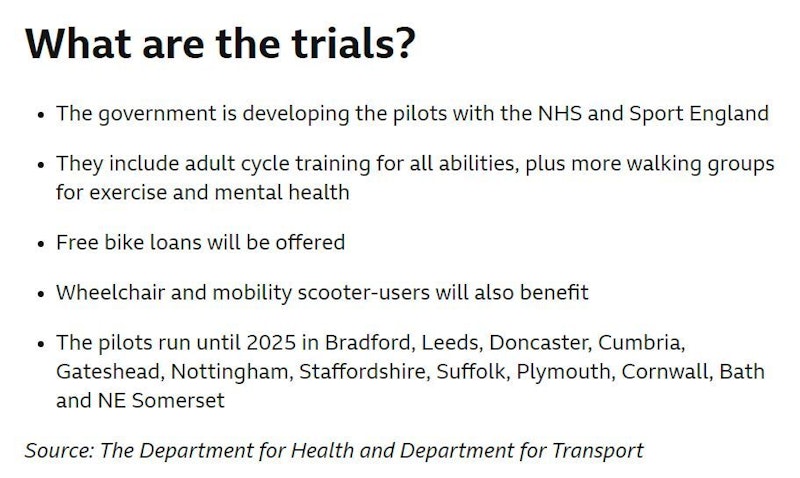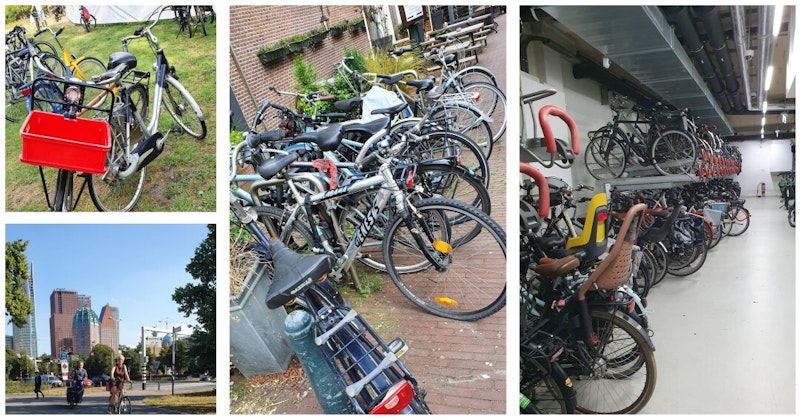In the News
Social prescribing, cycling and what we might learn from the Netherlands

25th August 2022
Earlier this week the BBC reported on government-funded social prescribing pilots in a number of cities, aimed at improving health and reducing the burden on the NHS.
In the article - GPs to prescribe walking and cycling to improve health - it is stated that £12.7 million will be spent on the social prescribing pilots. Whilst GPs that the BBC spoke to agreed that walking and cycling for example, will improve both mental and physical health, they do not necessarily believe they have the time and capacity to both look after sick people and refer people to these new schemes.

Social prescribing is not a new concept - there are many health and social care workers, including GPs that are already successfully doing it. Check out the videos below.
So what might we learn from the Netherlands? Is social prescribing the only answer?
In the last week I have been on holiday in the Netherlands, a country well known for being cycling friendly. The Netherlands boasts an excellent cycling infrastructure. The cycle network’s total length is more than 35,000 kilometres (21,748 miles), equivalent to a quarter of the Netherlands’ entire 140,000 km (86,992 mile) road network. It is incredibly safe to cycle in the Netherlands, not only due to the network of cycle lanes and paths but also the priority and rights of way given to cyclists. This means that around 27% of all journeys made in the Netherlands, are by bicycle.
But are the Dutch healthier?
According to this research - Dutch Cycling: Quantifying the Health and Related Economic Benefits - cycling does make the Dutch healthier.
'Cycling prevents about 6500 deaths each year, and Dutch people have half-a-year-longer life expectancy because of cycling. These health benefits correspond to more than 3% of the Dutch gross domestic product. Our study confirmed that investments in bicycle-promoting policies (e.g., improved bicycle infrastructure and facilities) will likely yield a high cost–benefit ratio in the long term.'

Cycling UK are one of a number of UK pressure groups that believe we need to improve our cycling infrastructure in the UK, to make cycling easier and safer, which will mean more people do it and we all reap the benefits. See the video for more on this.
You might also like
Unit 4 Teaching Activity: Toss 'N Term
Teaching Activities

Can drumming enhance your wellbeing?
8th August 2022

Learning disabilities and health inequalities
17th October 2022

The dangers of black mould
21st November 2022

RevivR - learn CPR in 15 minutes
28th February 2023

Radiotherapy for Prostate Cancer
5th October 2023